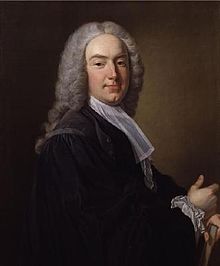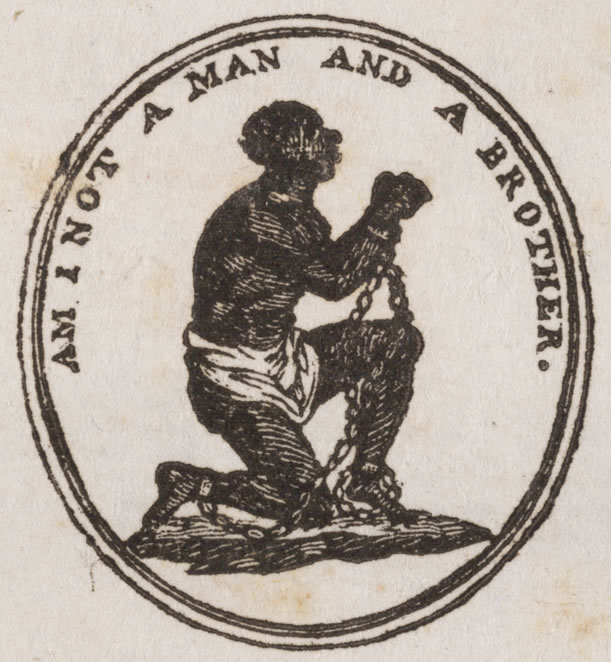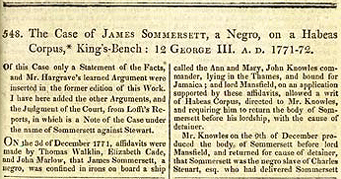The Sommersett Case
Howell's State Trials, vol. 20, cols 1-6, 79-82
The Case of JAMES SOMMERSETT, a Negro, on a Habeas Corpus, King's-Bench: 12 GEORGE III. A.D. 1771-72.

Lord Mansfield
Of this Case only a Statement of the Facts, and Mr. Hargrave's learned Argument were inserted in the former edition of this Work. I have here added the other Arguments, and the Judgment of the Court, from Lofft's Reports, in which is a Note of the Case under the name of Sommersett against Stewart.
On the 3d of December 1771, affidavits were made by Thomas Walklin, Elizabeth Cade, and John Marlow, that James Sommersett, a negro, was confined in irons on board a ship called the Ann and Mary, John Knowles commander, lying in the Thames, and bound for Jamaica; and lord Mansfield, on an application supported by these affidavits, allowed a write of Habeas Corpus, directed to Mr. Knowles, and requiring him to return the body of Sommersett before his lordship, with the cause of detainer.
Mr. Knowles on the 9th of December produced the body of Sommersett before Lord Mansfield, and returned for cause of detainer, that Sommersett was the negro slave of Charles Steuart, esq. who had delivered Sommersett into Mr. Knowles's custody, in order to carry him to Jamaica, and there sell him as a slave. Affidavits were also made by Mr. Steuart and two other gentlemen, to prove that Mr. Steuart had purchased Sommersett as a slave in Virginia, and had afterwards brought him into England, where he left his master's service; and that his refusing to return, was the occasion of his being carried on board Mr. Knowle's ship.
Lord Mansfield chusing to refer the matter to the determination of the court of King's-bench, Sommersett with sureties was bound in a recognizance for his appearance there on the second day of the next Hilary term; and his lordship allowed till that day for settling the form of the return to the Habeas Corpus. Accordingly on that day Sommersett appeared in the court of King's-bench, and then the following return was read:...

Lord Mansfield. - The question is, if the owner had a right to detain the slave, for the sending of him over to be sold in Jamaica. In five or six cases of this nature, I have known it to be accommodated by agreement between the parties: on its first coming before me, I strongly recommended it here. But if the parties will have it decided, we must give our opinion. Compassion will not, on the one hand, nor inconvenience on the other, be to decide; but the law: in which the difficulty will be principally from the inconvenience on both sides. Contract for sale of a slave is good here; the sale is a matter to which the law properly and readily attaches, and will maintain the price according to the agreement. But here the person of the slave himself is immediately the object of enquiry; which makes a very material difference. The now question is, Whether any dominion, authority or coercion can be exercised in this country, on a slave according to the American laws? The difficulty of adopting the relation, without adopting it in all its consequences, is indeed extreme; and yet, many of those consequences are absolutely contrary to the municipal law of England. We have no authority to regulate the conditions in which law shall operate. On the other hand, should we think the coercive power cannot be exercised: it is now about 50 years since the opinion given by two of the greatest men of their own or any times, (since which no contract has been brought to trial, between the masters and slaves;) the service performed by the slaves without wages, is a clear indication they did not think themselves free by coming hither. The setting 14,000 or 15,000 men at once loose by a solemn opinion, is very disagreeable in the effects it threatens. There is a case in Hobart, (Coventry and Woodfall,) where a man had contracted to go as a mariner: but the now case will not come within that decision. Mr. Steuart advances no claims on contract; he rests his whole demand on a right to the negro as slave, and mentions the purpose of detainure to be the sending of him over to be sold in Jamaica. If the parties will have judgment, 'fiat justitia, ruat coelum;' let justice be done whatever be the consequence. 50l. a-head may not be a high price; then a loss follows to the proprietors of above 700,000l. sterling. How would the law stand with respect to their settlement; their wages? How many actions for any slight coercion by the master? We cannot in any of these points direct the law; the law must rule us. In these particulars, it may be matter of weighty consideration, what provisions are made or set by law. Mr. Steuart may end the question, by discharging or giving freedom to the negro. I did think at first to put the matter to a more solemn way of argument: but if my brothers agree, there seems no occasion. I do not imagine, after the point has been discussed on both sides so extremely well, any new light could be thrown on the subject. If the parties chuse to refer it to the Common Pleas, they can give themselves that satisfaction whenever they think fit. An application to parliament, if the merchants think the question of great commercial concern, is the best, and perhaps the only method of settling the point for the future. The Court is greatly obliged to the gentlemen of the bar who have spoke on the subject; and by whose care and abilities so much has been effected, that the rule of decision will be reduced to a very easy compass. I cannot omit to express particular happiness in seeing young men, just called to the bar, have been able so much to profit by their reading. I think it is right the matter should stand over; and if we are called on for a decision, proper notice shall be given.

Trinity Term, June 22, 1772.
Lord Mansfield. - On the part of Sommersett, the case which we gave notice should be decided this day, the Court now proceeds to give its opinion. I shall recite the return to the writ of Habeas Corpus, as the ground of our determination; omitting only words of form. The captain of the ship on board of which the negro was taken, makes his return to the writ in terms signifying that there have been, and still are, slaves to a great number in Africa; and that the trade in them is authorized by the laws and opinions of Virginia and Jamaica; that they are goods and chattels; and, as such, saleable and sold. That James Sommersett is a negro of Africa, and long before the return of the king's writ was brought to be sold, and was sold to Charles Steuart, esq. then in Jamaica, and has not been manumitted since; that Mr. Steuart, having occasion to transact business, came over hither, with an intention to return; and brought Sommersett to attend and abide with him, and to carry him back as soon as the business should be transacted. That such intention has been, and still continues; and that the negro did remain till the time of his departure in the service of his master Mr. Steuart, and quitted it without his consent; and thereupon, before the return of the king's writ, the said Charles Steuart did commit the slave on board the Anne and Mary, to safe custody, to be kept till he should set sail, and then to be taken with him to Jamaica, and there sold as a slave. And this is the cause why he, captain Knowles, who was then and now is, commander of the above vessel, then and now lying in the river of Thames, did the said negro, committed to his custody, detain; and on which he now renders him to the orders of the Court. We pay all due attention to the opinion of sir Philip Yorke, and lord chancellor Talbot, whereby they pledged themselves to the British planters, for all the legal consequences of slaves coming over to this kingdom or being baptized, recognized by lord Hardwicke, sitting as chancellor on the 19th of October, 1749, that trover would lie: that a notion had prevailed, if a negro came over, or became a Christian, he was emancipated, but no ground in law: that he and lord Talbot, when attorney and solicitor-general, were of opinion, that no such claim for freedom was valid; that though the statute of tenures had abolished villeins regardant to a manor, yet he did not conceive but that a man might still become a villein in gross, by confessing himself such in open court. We are so well agreed, that we think there is no occasion of having it argued (as I intimated an intention at first,) before all the judges, as is usual, for obvious reasons, on a return to Habeas Corpus. The only question before us is, whether the cause on the return is sufficient? If it is, the negro must be remanded; if it is not, he must be discharged. Accordingly, the return states, that the slave departed and refused to serve; whereupon he was kept, to be sold abroad. So high an act of dominion must be recognized by the law of the country where it is used. The power of a master over his slave has been extremely different, in different countries. The state of slavery is of such a nature, that it is incapable of being introduced on any reasons, moral or political, but only by positive law, which preserves its force long after the reasons, occasion, and time itself from whence it was created, is erased from memory. It is so odious, that nothing can be suffered to support it, but positive law. Whatever inconveniences, therefore, may follow from the decision, I cannot say this case is allowed or approved by the law of England; and therefore the black must be discharged.
